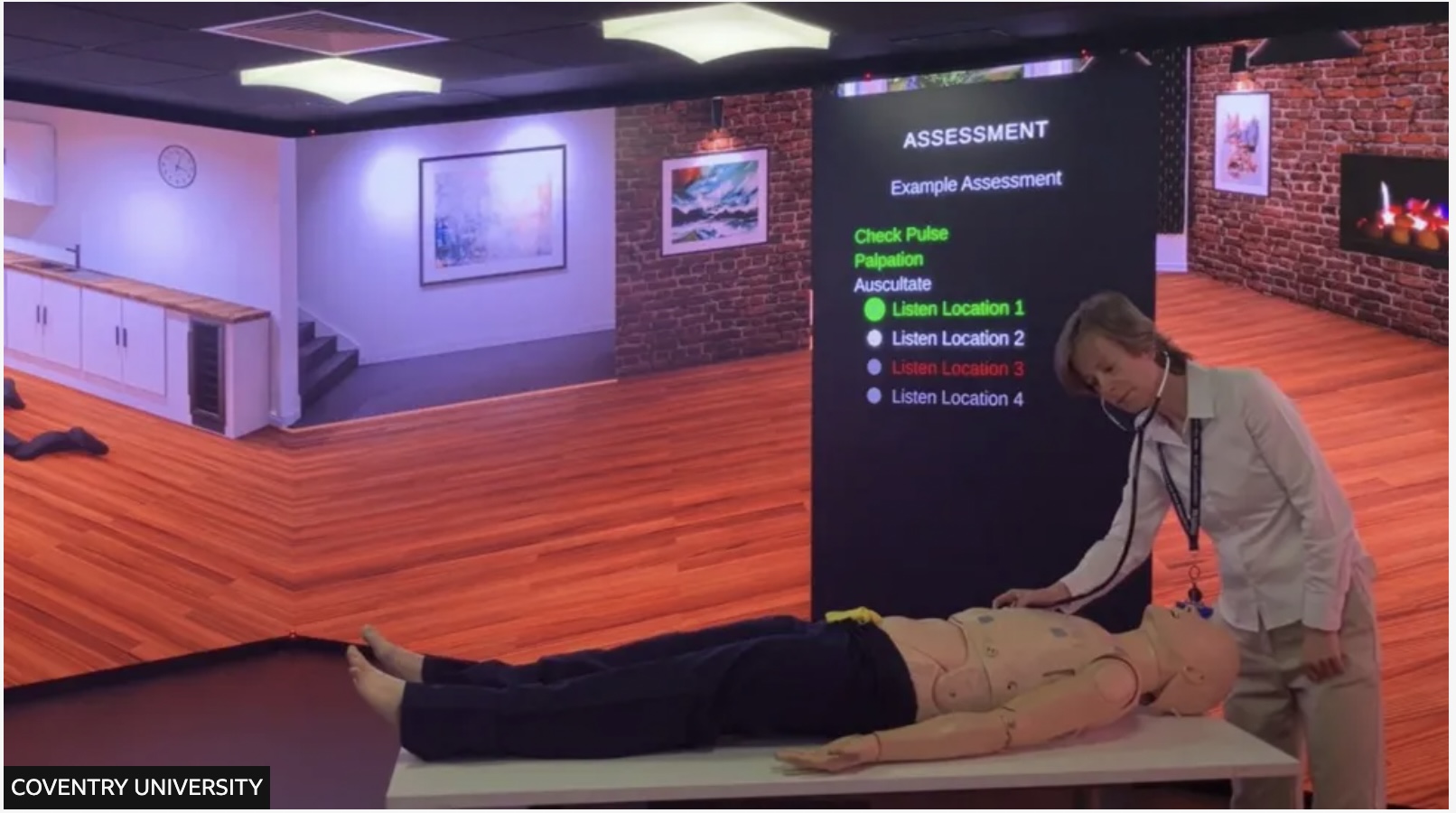latest
Health care students to benefit from virtual reality room
Students at Coventry University will be able to practise performing clinical tasks in a simulated environment
“It’s really important that our students can learn in a completely safe environment that allows them to make mistakes, and learn from their mistakes so when they go out into actual practice and see actual people they feel confident and competent.” Dr Natasha Taylor, associate professor, Coventry University
Health care students at Coventry University will be able to use a new virtual reality health suite to help them learn more effectively.
The Cave Automatic Virtual Environment (CAVE), funded by a £5m grant from the Office for Students (OfS), a regulatory body, simulates different health care settings and patient scenarios.
The CAVE, which was supplied by Animmersion UK and ArtAV, has a huge simulation screen wrapped around three walls on which different health care settings and scenarios are simulated, while students can also interact with simulated patients by using 3D headsets.
The CAVE enables students to practise clinical events in a safe setting and put their learning into practice. They can zoom in on interactive organs such as the heart to better understand their structures and how they work, or interact with a healthcare mannequin connected to the screen. As well as practising procedures and diagnostic techniques, the students will use the suite to practise patient interactions.
Dr Natasha Taylor, an associate professor in the university’s school of nursing, midwifery and health, said: “It allows our learners at the touch of a button to move between environments such as a hospital ward, an operating theatre, the back of an ambulance or outside. We also have a model viewer that allows our learners to take parts of the body and look at them in depth, move them around and even go inside them.”
She added that the simulation environment was very valuable for students: “It’s really important that our students can learn in a completely safe environment that allows them to make mistakes, and learn from their mistakes so when they go out into actual practice and see actual people they feel confident and competent.”
FCC Insight
We’re pleased to see Coventry University offering such an innovative approach by allowing its healthcare students the opportunity to practise their skills in a virtual environment.
As our recent publication looking at the potential of extended reality in healthcare education shows, immersive technology enables students to perform diagnostic techniques and carry out interactions with patients without any risk of harm. The ability to see structures such as the heart in 3D also gives students a much more complete understanding of how the body works than a flat picture in a textbook. Another major benefit is because there isn’t a limit to the number of times they can practise those techniques, students have the chance to perfect their skills and build their confidence in a near-realistic healthcare setting.
We fully expect and endorse other universities and educational settings offering medical and health courses to follow Coventry’s lead.
